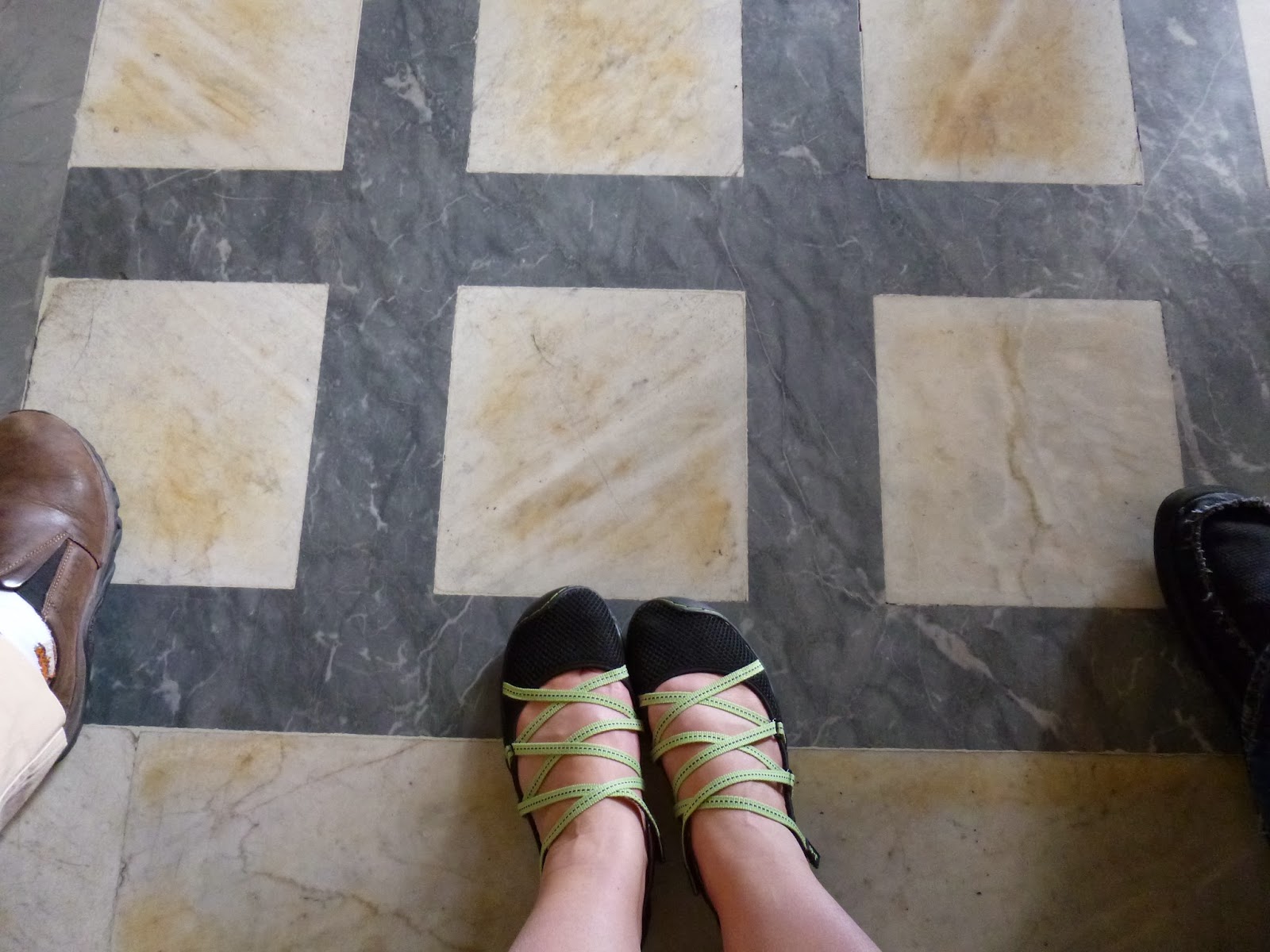Special footwear may not improve knee arthritis
Shoes with modified midsoles designed to relieve pressure on the knee joint don’t improve pain and function for people with knee osteoarthritis any more than a new pair of regular walking shoes, according to an Australian study.
By Kathryn Doyle, Reuters Health in The Globe and Mail July 13, 2016
Knee osteoarthritis may affect up to a quarter of women and 15 percent of men over age 60, the researchers note in their report in Annals of Internal Medicine July 12.
“It is somewhat surprising that we did not observe greater pain relief with the Gel Melbourne OA shoes compared to conventional shoes, given that our biomechanical research previously showed that the shoes can significantly reduce loads across the inner knee compartment,” said lead author Rana S. Hinman of the University of Melbourne.

Fig. 1. Conventional walking shoes (GEL-Odyssey, left) and unloading shoes (GEL-Melbourne OA, right) used in the study. Both shoes were visually similar. [1]
The researchers studied 164 people aged 50 years and older who reported knee pain on most days of the previous month. They divided the participants into two groups, with one group receiving standard walking shoes while the others got the special “unloading” walking shoes with “triple-density, variable-stiffness midsoles and mild lateral-wedge insoles.”
Participants were instructed to wear these shoes at least four hours per day for six months and to avoid changing shoes. Before the study began, and after six months of wear, they reported on their own knee pain and physical function.
About half of participants reported an overall reduction in pain and an overall increase in function, but they were about evenly split between the group that received regular walking shoes and those who got the specially designed unloading shoes.
“Our trial shows the unloading shoes conferred no additional benefit compared to the conventional comparator shoes – however both types of shoes resulted in significant pain relief and improvement in physical function compared to baseline levels recorded by participants at the start of the trial,” Hinman said. “So both types of shoes were beneficial to the patients in our trial – and thus either type of shoe could be considered beneficial.”
Both types of shoes in this trial sell for about $180 dollars.
To help relieve symptoms, Hinman said, people with knee arthritis can also use regular participation in strengthening and aerobic exercise, weight loss for those who are overweight or obese and education about how to self-manage knee pain through strategies such as activity pacing, use of heat or cold, activity modification, analgesics and anti-inflammatories.
“I think they would have seen an effect with a comparison group who wore their usual shoes,” said Marian T. Hannan of the Institute for Aging Research in Boston who co-authored an editorial accompanying the new study.
Just getting a new pair of shoes, regardless of the kind, may help with some knee pain, Hannan told Reuters Health.
“Current guidelines for arthritis say you should wear appropriate shoes but no one defines what appropriate shoes are,” she said. Supportive, lace-up shoes are better than clogs or flip-flops, but the best level and type of support is still unclear, she said.
 Source The Globe and Mail
Source The Globe and Mail
| References |
Unloading Shoes for Self-Management of Knee Osteoarthritis: A Randomized Trial, Hinman, Rana S, Wrigley, Tim V, Metcalf, Ben R., Campbell, Penny K, Paterson, Kade L, Hunter, David J, Kasza, Jessica, Forbes, Andrew. Ann Intern Med. Published online 12 July 2016 doi:10.7326/M16-0453
A Cinderella Tale: Can New Shoes Change the Life of a Person With Knee Osteoarthritis? Marian T. Hannan, DSc, MPH; Carol A. Oatis, PhD, PT; and Robert R. McLean, DSc, MPH. Ann Intern Med. Published online 12 July 2016 doi:10.7326/M16-1459
Moderators and mediators of effects of unloading shoes on knee pain in people with knee osteoarthritis: an exploratory analysis of the SHARK randomised controlled trial, Paterson KL, Kasza J, Bennell KL, Wrigley TV, Metcalf BR, Campbell PK, Hunter DJ, Hinman RS. Osteoarthritis Cartilage. 2018 Feb;26(2):227-235. doi: 10.1016/j.joca.2017.11.002. Epub 2017 Nov 8.
Effect of knee unloading shoes on regional plantar forces in people with symptomatic knee osteoarthritis – an exploratory study, van Tunen JAC, Paterson KL, Wrigley TV, Metcalf BR, Thorlund JB, Hinman RS. J Foot Ankle Res. 2018 Jun 26;11:34. doi: 10.1186/s13047-018-0278-x. eCollection 2018.
art3A10.11862F1471-2474-15-48
Unloading shoes for osteoarthritis of the knee: protocol for the SHARK randomised controlled trial, Hinman RS, Wrigley TV, Metcalf BR, Hunter DJ, Campbell P, Paterson K, Staples MP, Bennell KL. BMC Musculoskelet Disord. 2014 Feb 21;15:48. doi: 10.1186/1471-2474-15-48.
Also see
Orthopedic Shoes: Relief for Arthritis and Joint-Pain Sufferers Dignity Health
Breaking Your Fall: Gait Mechanics for Injury Prevention Breaking Muscle UK
Knee OA Pain: Wedge Insoles of Questionable Benefit Medscape
Beating osteoarthritis knee pain: Beyond special shoes Harvard Health Blog
Will ‘unloading’ shoes help your arthritic knees? in HealthDay
Walking shoes provide relief from knee osteoarthritis University of Melbourne
Aching Foot Makes OA-Related Knee Pain Worse MedPage Today
Will ‘unloading’ shoes help your arthritic knees? Healthday

